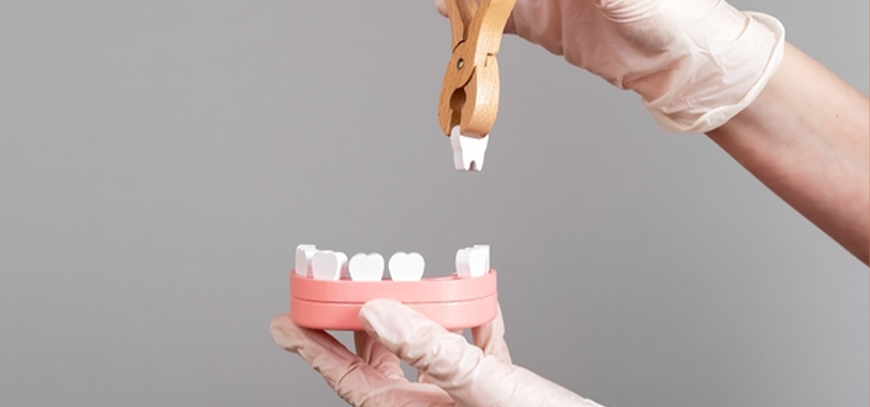Ask the Experts
DENTAL EXTRACTIONS

A tooth extraction may be necessary for many reasons, including severe damage or decay. One of the most common dental procedures, a tooth extraction can eliminate bacteria and improve your overall oral health.
When is tooth extraction recommended?
We at HeadFirst Clinic prefer to save natural teeth whenever possible. But sometimes, other restorative methods — such as dental fillings or dental crowns — aren’t enough. If your tooth has been badly damaged past the point of repair, then removal may be necessary. Your dentist may recommend tooth extraction if you have:
- Severe tooth decay (cavities).
- A fractured tooth.
- An impacted tooth.
- Crowded teeth.
- Severe gum disease.
- Tooth luxation or other dental injuries.
What are the side effects of removing a tooth?
Normal side effects following tooth extraction include bleeding, swelling and discomfort. Your dentist will provide instructions on how to successfully manage your healing.
Avoid hard and crunchy foods for the first few days. Stock your fridge and pantry with soft foods like rice, pasta, eggs, yoghurt and applesauce. You’ll also want to avoid drinking through straws, as this can dislodge blood clots and cause dry sockets.
It is normal to feel some pain after the anaesthetic wears off. For 24 hours after having a tooth pulled, you should also expect some swelling and residual bleeding.
There are three common types of tooth extractions: simple extractions, impacted tooth extractions, and the removal of tooth roots.
